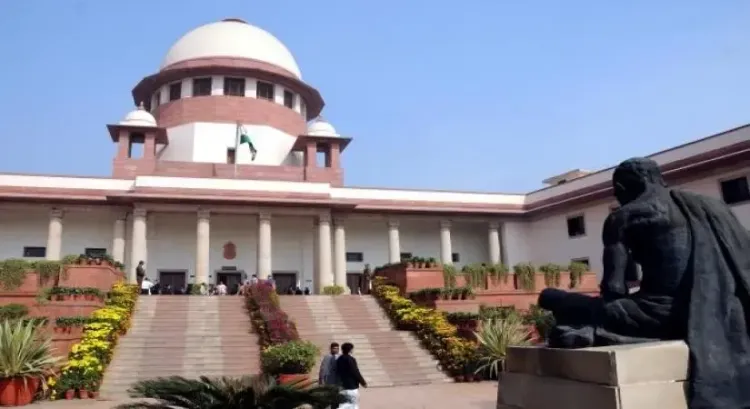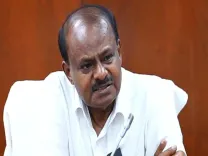Supreme Court Questions Tamil Nadu Governor's Delay on Bills

Synopsis
Key Takeaways
- The Supreme Court is scrutinizing the Governor's inaction on Bills.
- Governor's role in communicating with the Assembly is under question.
- The Tamil Nadu government accuses the Governor of political rivalry.
- Article 200 mandates Governor's approval for Bills.
- Delay in assent raises legal and governance concerns.
New Delhi, Feb 7 (NationPress) The Supreme Court on Friday inquired with the Attorney General, the highest legal authority of the Central Government, whether the Tamil Nadu Governor could merely postpone action on the Bills passed by the Assembly, believing them to be inconsistent with the Constitution, without expressing his views to the legislature.
A panel comprising Justices J.B. Pardiwala and R. Mahadevan remarked that the apex court could examine the factual matter of the Bills' inconsistency if the President declined to approve them, citing constitutional repugnance.
The Justice Pardiwala-led panel queried whether it was not the Governor's duty to return the Bills to the Assembly promptly upon identifying any inconsistency.
"If the Governor believes that a Bill is prima facie inconsistent, shouldn't he alert the state government? How can the government discern the Governor's thoughts? If the Governor was concerned about the inconsistency, he should have informed the government right away, allowing the Assembly to reconsider the Bills," stated the apex court.
In a writ petition submitted under Article 32 of the Constitution to the apex court, the Tamil Nadu government asserted that the Governor has positioned himself as a 'political opponent' to the legitimately elected state administration. Following a notice from the Supreme Court regarding the Tamil Nadu government's request, the Governor returned 10 out of 12 Bills awaiting his approval.
As per Article 200 of the Constitution, if a Bill is presented again, with or without modifications, and is submitted to the Governor for approval, he must grant his consent.
As the Tamil Nadu Assembly convened a special session to re-adopt 10 Bills, which were sent back by the Governor for review, he forwarded them to the President.
In November of the previous year, the apex court raised concerns regarding the delay by Tamil Nadu Governor R.N. Ravi in granting assent to the Bills approved by the state legislature. Upon learning that the Governor had returned 10 out of 12 Bills pending with him, the SC remarked: "These Bills have been pending since January 2020. It indicates that the Governor made his decision after the court issued notice. What was he doing for three years? Why did the Governor wait for parties to approach the Supreme Court?"









